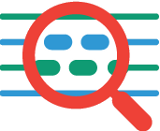Big-Data
 Every day the world is generating 4 Quadrillion Bytes of data (that is 10^16) and the total amount of data in the world is growing about 5 fold every year.
Every day the world is generating 4 Quadrillion Bytes of data (that is 10^16) and the total amount of data in the world is growing about 5 fold every year.
The challenge is to take this vast tsunami of data and turn it into useful information that we can digest and use. Often there is public data, freely available, that can be added to private data to create whole new services. Obvious examples would be combining company data on ice cream sales, with weather forecast data to predict demand for the product, but almost every business has the opportunity to make similar combinations to add value to their business.
The second step is often the need to clean up the data. With so much data coming from disparet sources inconsistencies are bound to arise - finding ways to filter out exceptions and build a better pool of agreed knowledge is often an onging process. AI will become an important tool if we can find a way to avoid 'hallucinations'.
The third step is 'data visualisation'. Florence Nightingale is mostly famous for her great work with sick soldiers during the Crimea War, but it is quite possible that her most enduring legacy will be the invention of the 'Pie Chart' as an effective way of presenting her dry mortality figures in such a visually clear manner that the military could not ignore her message. Today we can automate the process that enables us to explore the digital landscape in such a visually clear manner that relevant correlations are immediately apparent.
In the past statistical analysis has been the way to understand the word. You take a small and hopefully representative sample, then analyse it to gain insight. Today we are often able to obtain the full data set which enables us to avoid the simplifications and approximations of sampling.
Related to Big-Data
A visual map of property prices across the UK broken down by property type.
We further developed the Mining Planning Database for a small surface gold mine in Eritrea. Small in the mining World is a startup cost of around $300m and we like to think that we played a part in keeping those costs to a minimum.
We were originally approached by the owner of a pie shop in Brighton, East Sussex to build a database for one of the World's largest gold producers in Ghana, West Africa. After our initial sceptisism it turned out to be true and one of our crew went on-site for a month whilst one of the World's largest surface mines was being prepared for production.
Losing source code can leave you in a costly predicament. If the software is important, the cost of redeveloping it from scratch is extremely painful. We can ease the burden by recovering large parts of your lost code and giving you back control.
Can you see anybody in your offices who
• Is manually re-inputting data that originated in one computer into another computer?
• Is anybody using spreadsheets to record and report on regular activities?
• Spending a lot of time updating the data in a standard report on a periodic basis?
See why they shouldn't be doing that…..